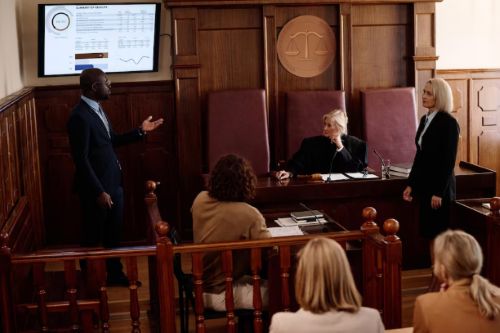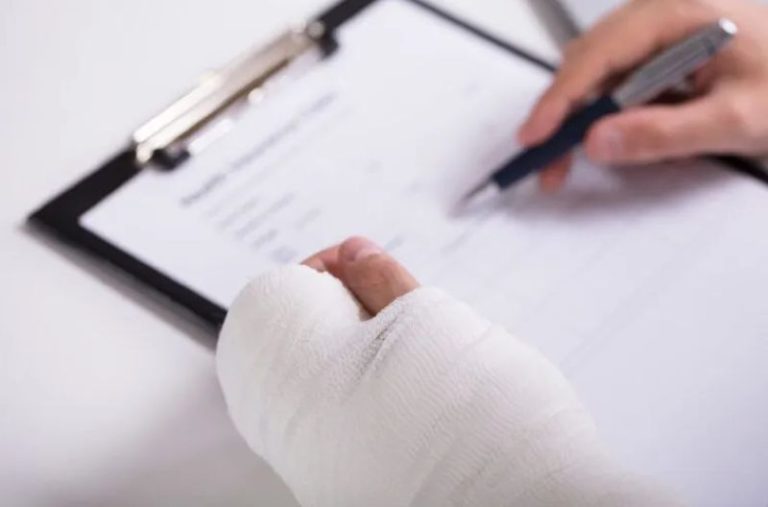

It’s unsettling when an injury disrupts your life, isn’t it? The thought of taking legal action can feel overwhelming. There’s so much uncertainty and often misconceptions about what pursuing a personal injury claim actually entails. How do you deal with insurance companies, medical bills, and—potentially—a courtroom?
The process of filing a personal injury claim can feel daunting, especially when you’re focused on recovery. If you’ve experienced an accident in Georgia, it may be worth consulting with a firm specializing in personal injury claims. Firms like Buckhead Law, with their expertise in navigating Georgia’s legal landscape, can provide invaluable assistance in understanding your rights and options, ensuring you’re well-prepared for what lies ahead.
A personal injury lawyer can help ease the stress and improve your chances of a favorable outcome. This article is designed to guide you through the entire process, from the initial consultation to a trial, if necessary. Consider this an overview of what to expect and the importance of having experienced legal support.
So, what does a personal injury lawyer do? They are legal professionals who assist individuals injured due to someone else’s negligence. This includes car accidents, slip and falls, medical malpractice, and defective products. Their expertise is essential for navigating insurance claims, legal filings, and negotiations.
Personal injury lawyers often work on a contingency fee basis, meaning they only get paid if you win your case. This arrangement can be a significant benefit, aligning their interests with yours. They also have ethical obligations to act in your best interest, advocating for you throughout the legal process.
The Initial Consultation – What to Expect
The initial consultation can be nerve-wracking, but understanding what to expect can ease your anxiety. This first meeting allows you and the lawyer to assess whether you’re a good fit for each other. You’ll discuss the incident that led to your injury, your injuries, and any relevant documents. Be prepared to answer questions.
Bring any available documents, such as police reports from the accident, medical records detailing your treatment, insurance information, and evidence like photos or witness statements. The lawyer will need this information to assess your case.
Ask questions about the lawyer’s experience with similar cases, their success rate, and communication style. The lawyer should explain timelines, fees, and potential outcomes. Most consultations are free. This meeting will set the stage for what’s to come and help prepare you for a potentially lengthy process.
Investigation and Case Building
After the initial consultation, the lawyer’s team will investigate your case thoroughly. This involves collecting evidence, such as photos of the accident scene, witness statements, medical records, and the police report. They may consult with experts, such as accident reconstructionists, medical professionals, and economists.
The legal team will determine liability and calculate damages, including economic damages (medical bills, lost wages) and non-economic damages (pain and suffering). They’ll build a legal theory based on the facts and applicable laws. Throughout this process, they’ll communicate with insurance companies or other involved parties on your behalf.
Negotiation and Settlement Discussions
Most personal injury cases are settled out of court through negotiation. Your lawyer will protect you from lowball offers and advocate for fair compensation.
The settlement timeline varies. Typically, your lawyer will make a demand (a formal request for compensation), and the insurance company will respond (often with a lower offer). Counteroffers will follow. This process can take time and be frustrating.
Settling is a significant decision, and your lawyer will advise you on the pros and cons. While the final decision is yours, your lawyer will ensure you understand all aspects of the settlement. Settlements are often confidential, and there may be tax implications, which your lawyer can also guide you through.
Preparing for Litigation
If negotiation fails, filing a lawsuit may be necessary. This step escalates the process and moves it closer to a potential court date.
The pre-trial phase involves “discovery,” which includes gathering information from both sides through depositions, interrogatories, and document requests. There may also be motions and hearings before the trial.
Litigation can be emotionally draining and time-consuming, potentially lasting months or years. As the client, you may need to testify, provide documents, and attend meetings. Your lawyer will support you throughout this process.
The Trial Process
The courtroom can be intimidating, but understanding the process can help. First, there’s jury selection. Then, each side presents opening statements outlining their case.
Next, witnesses testify and undergo cross-examination. Your lawyer will present evidence and call expert witnesses to support your claim. The opposing side will then present their case.
Closing arguments follow, where each side summarizes their case and tries to persuade the jury. The jury deliberates and reaches a verdict.
The verdict is the jury’s decision on whether you’ve proven your case and the amount of compensation you’re entitled to. Your lawyer will support you throughout the trial, explaining what’s happening and ensuring your voice is heard.
After the Case – Appeals and Collections
Even after the case concludes, there may be appeals, where either side challenges the verdict.
If you win, the money must be collected and disbursed. Your lawyer will ensure that the judgment is enforced and that you receive the compensation you’re entitled to. They’ll also handle final fee deductions and distribute the funds.Your next steps may include managing those funds, continuing medical care, and resuming your normal life.

Conclusion and Key Takeaways
The personal injury process can be lengthy and complex, but it doesn’t have to be daunting with experienced legal support. Your lawyer will handle the legal complexities, allowing you to focus on your recovery.
If you believe you have a case, don’t delay. Statutes of limitations (deadlines for filing lawsuits) exist, so act quickly. Schedule a free consultation with a local personal injury attorney.
For example, in California, the statute of limitations for personal injury cases is generally two years from the date of the injury. Missing this deadline means you could forfeit your right to sue. Consulting an attorney promptly helps ensure you don’t miss crucial deadlines.


